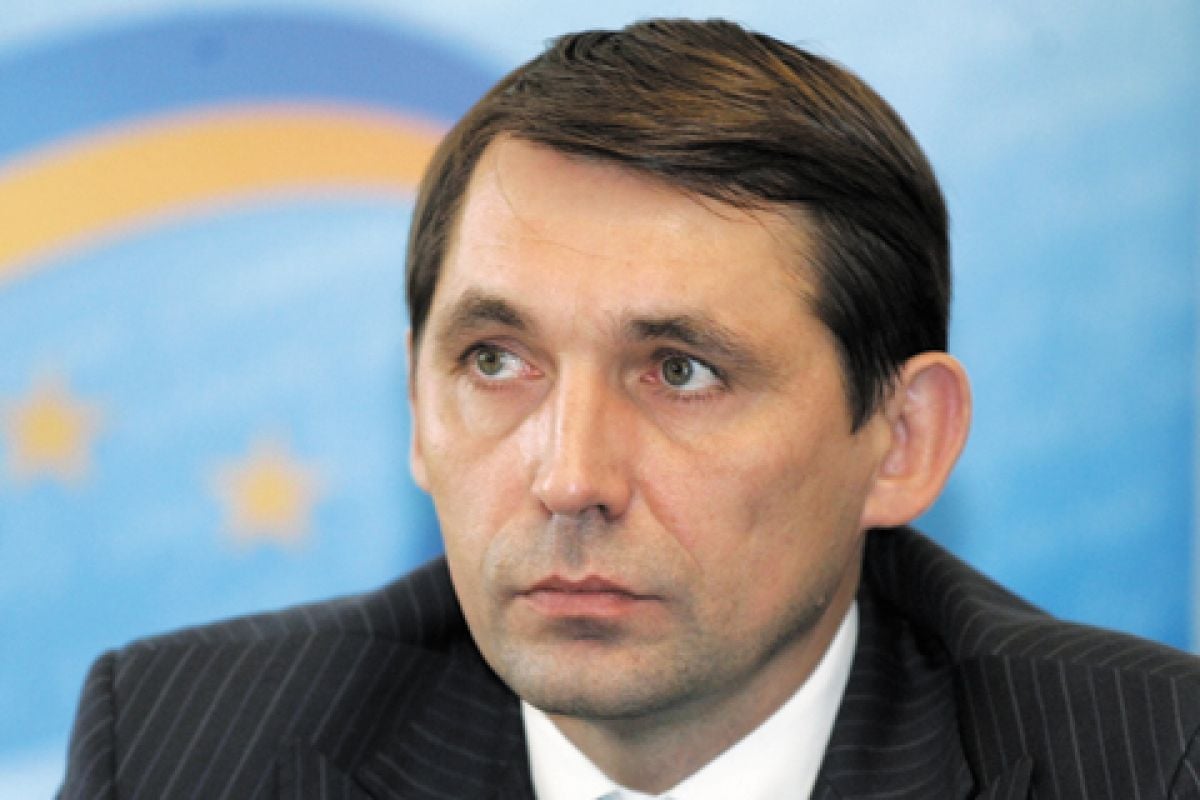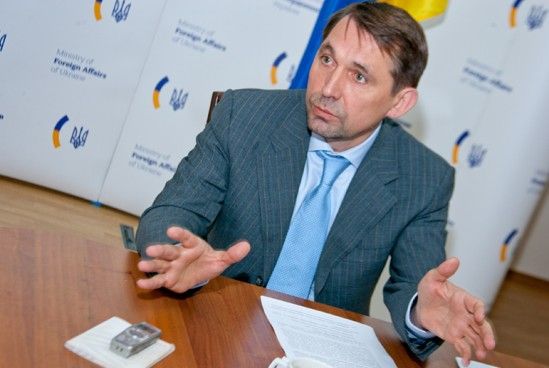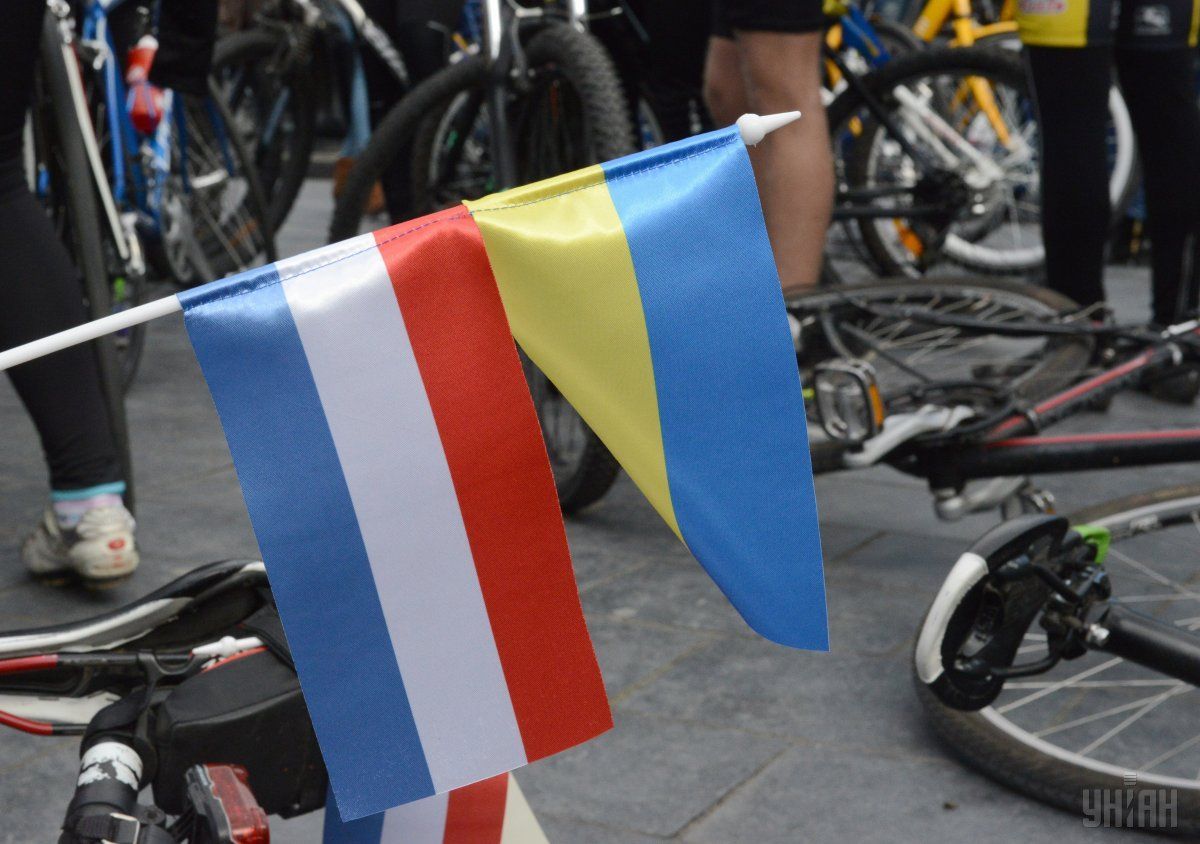
Mykola Tochytskyi: "We need to shift from "Ukraine is a victim" stereotype
Former Representative of Ukraine to the Council of Europe and now the country’s envoy to the EU, Ambassador Mykola Tochytskyi has spoken with UNIAN about the prospects of an Open Sky agreement for Ukraine, the issue of EU integration of Ukrainian electricity market, and the steps Ukraine can take in opposing Russian influence in the EU.
Recently, Vice President of the European Commission for the Energy Union Maros Sefcovic sounded positive about the transit of Russian gas via Ukraine. At the same time, the Commission unilaterally decides to increase Russia’s access to the OPAL pipeline. Why wasn’t Kyiv invited to participate in discussions on this issue?
The question of why consultations haven’t been held with Ukraine in the process of the preparation of the decision on the OPAL pipeline should be directed precisely to the European Commission. It is the European Commission who has drafted and approved the document. Meanwhile, as early as at the end of last year, we started experiencing the negative consequences of this step, that’s when Russian and German operators of gas transport systems increased the OPAL load, apparently by shrinking the transit via Ukraine.
This is happening despite the Court of Justice ruling of December 23, 2016, to suspend the decision of the Commission of November 28, 2016, handed down in response to the claim of the Polish side; and despite the existing decision of the European Commission of 2009.
Why hasn’t Ukraine filed a claim to the Court of Justice as Poland has?
Not being a member state of the EU, Ukraine has no right to lodge suits with the Court of Justice. However, the Ukrainian side engaged lawyers to study the legal ways and mechanisms available that would defend our state interests and ensure that the obligations under the Ukraine-EU Association Agreement are mutually respected. At the same time, I hope that diplomatic tools will be enough to resolve this issue. Indeed, in recent years cooperation between Ukraine and the EU in the energy sector has developed on the principles of trust and solidarity.
How is the implementation moving of an action plan for the integration of the Ukrainian electricity market into the EU market (ENTSO-E)?
Despite the fact that for a long time this issue has not been properly addressed, last year there have been certain shifts. In particular, the possibility of parallel operations of Ukrainian and Moldovan energy grids with a Synchronous grid of Continental Europe was studied, as well as whether the ENTSO-E technical standards are being implemented in Ukraine and Moldova’s power grids, and at what level.
This study was the first step, which is to be followed by the profitability analysis and an action plan.
According to experts, given the political will of the parties and the active efforts, it could take just three to five years to synchronize the power grids. I hope that we can make it, as it's another step to increase energy security.
For several years, the Open Sky agreement has been "hung in the air." Are there any developments in this regard?
As you know, the prospects of signing the deal on Common Aviation Area are affected by a territorial dispute between Spain and Britain over Gibraltar. But now there are some signs indicating the possibility of reaching a compromise. For example, in early December, the European Council agreed its position on the updated mandate of the European Agency for Aviation Safety. This mandate was agreed both by Spain and Great Britain.
We are keeping this issue under special control. After all, we are talking about the real benefits that our citizens will feel as airfares will be reduced, air transportation network will be expanded, and I hope that the quality of air services will be enhanced as well. Therefore, we continue to work both with Brussels, London, and Madrid, and that’s not only at the level of our foreign ministry. So I remain optimistic in this regard and I hope that in 2017, the EU will finally be able to unlock the signing of the Agreement.

When should we expect the European Parliament’s approval of the proposal on providing additional trade preferences for Ukraine?
Currently, the proposals for additional preferences are under consideration in the European Parliament. This issue is to be considered by the appropriate committee and then submitted for discussion at the plenary session. The estimated deadline is late April 2017, provided that the proposals will not be considered as too sensitive. After the European Parliament, the EU Council has its say. Therefore, I would like to refrain from any forecasts about the timing of completion of all procedures. Instead, we need to focus on our work with the European Parliament and EU Member States, which is what we are doing.
Is there any Plan B for Kyiv if the Netherlands fails to ratify the Association Agreement?
Let's not focus on negative scenarios, as there’s no reason for this at the moment. First and foremost, through joint efforts with our partners we were able late November to prevent the submission by the Dutch Government of a bill on canceling the Association Agreement, when everyone thought that the situation was hopeless. The efforts to save Ukraine never stopped – neither in Kyiv, nor in Brussels, nor The Hague, though they were often made behind the scenes. However, the delicacy of the situation required such a low profile.
As for the procedure and a timeframe, as you know, proposals have been submitted recently to the Lower House of the Dutch Parliament with a conclusion by the Council of State to adopt the previously approved law on the ratification of the Agreement. We look forward to the vote, and there is reason to believe that it will be positive for Ukraine because [Mark] Rutte’s government enjoys a majority in the Lower House.
As for the voting in the Senate, it can obviously happen after the parliamentary elections scheduled for March 15. The Senate is not involved in this election. Analyzing the positions of political leaders already declared, we can speak cautiously that there are chances this vote will also be in our favor.
And only after Brussels receives a notification from the Netherlands will the EU complete the process of ratification of the Agreement, which envisages its formal approval by the European Atomic Energy Community and the approval by the EU Council.
Regarding another aspect of the Agreement: on December 15, the EU has approved an annex to the Agreement with the Dutch proposals, which caused mixed reactions in Ukraine – there have been opinions that the document is "humiliating."
The decision that the European Council approved in December is not, formally, an annex to the Association Agreement. In fact, this is clarification by the EU of certain provisions of the document, which are believed to have caused concerns among the Dutch at a referendum in April 2016. This decision in no way changes the content of the Agreement.
Moreover, during a series of consultations in bilateral and trilateral formats with our Dutch and European counterparts, as well due to an active engagement of Member States, we were able to somehow balance the individual sensitive provisions of the EU leaders’ decision. In fact, we must remember that the main objective of this decision is primarily to unlock the Treaty’s ratification process.

In your opinion, what changes could the EU foreign policy experience toward Russia and Ukraine following the elections in France, the Netherlands, and Germany?
From a formal perspective, the answer to this question is more than obvious. Priorities and orientation of the EU foreign policy are determined in their Global Strategy, which, in particular, describes the EU's relations with Russia as a strategic challenge. In March [of last year], the EU Council approved the five known principles on which the EU is building its relations with Russia. In particular, they determine that any significant changes in relations with Russia are possible only following [Moscow’s] full implementation of Minsk agreements and the return [to Ukraine] of the illegally occupied Crimea. Another priority for the EU is to enhance relations with the Eastern Partnership countries and strengthen the EU stability, in the context of threats coming from Russia.
At the same time, we have to admit there is a surge of populism and euroscepticism across the EU. Against this background, Russia makes maximum use of all tools available and significant financial resources to undermine the unity of the EU, feeding radical movements and orchestrating disinformation campaigns. However, despite the rhetoric of some nominees for top posts across the EU, ostensibly acceptable to Moscow, European countries are aware of the danger and deceit coming from Russia. So I am convinced that whatever the outcome of the elections, the EU will build its relations with Russia based on international law, common European principles and values.
But under any circumstances, the EU support for Ukraine in its fight against Russian aggression, particularly by introducing multiple-level sanctions was never an ordinary thing.
What can Ukraine oppose to the Russian influence in the EU, which is now building up?
The driving force of "Russian influence" is a massive infusion of financial resources, including in propaganda and misinformation. It is clear that neither the EU nor Ukraine have desire or resources available for a symmetric response. I think we need to shift from the "Ukraine is a victim" stereotype, in order to create the image of a consistent, positive, and strong state that sets an example of courage and dignity in facing Russian aggression, proving it is worthy of support and respect. And, of course, we will be working to ensure that Europeans have alternative sources of information on the real situation in Ukraine and around it. That is, we will combine affordable and effective policy instruments of "soft" and "reasonable" force.
What are the plans for this year in bilateral relations between Kyiv and Brussels?
The agenda of our cooperation with the EU this year will not undergo significant adjustments. The priorities of Ukraine's relations with the EU in 2017 will still be the issue of EU support in the restoration of territorial integrity and peace in our country and in carrying out internal reforms. We will make every effort to secure full ratification and entry into force of the Ukraine-EU Association Agreement and a visa-free travel for Ukraine.
As for another dimension of EU-Ukraine relations, the Eastern Partnership, do you find this format effective today? Does Ukraine need it given the implementation of the Association Agreement?
The Eastern Partnership is a concrete practical dimension. We shouldn’t forget about a number of specific initiatives within the Eastern Partnership format. I will name only a few examples that might not be too well known to the public. In 2015, Ukraine joined the EU’s Horizon 2020 research and innovation program, which opened up to our researchers and businesses, along with the EU Member States, access to a EUR 8 billion budget program (until 2020). With the last year's accession to another EU program, COSME, Ukrainian small and medium enterprises (SMEs), among other things, will enjoy facilitated access to foreign markets.
As for the projects that we are pursuing now, I would like to mention the initiative to spread the EU’s reduced roaming tariffs to Eastern Partnership countries, the expansion of training and internship programs for Ukrainian students and young employees in the field of European integration in Member States and EU institutions, and access of Ukrainian exporters to the EU market.
Eastern Partnership is also interesting for us in terms of the experience of other countries in carrying out internal reforms – this is the state governance reform, fighting corruption, and improving the judicial system, and so on. By the way, upon our initiative, a meeting of the panel on state governance reform is scheduled to be held in Ukraine late March. The key event this year will be the 5th Eastern Partnership Summit to be held in Brussels late November.
Currently, work is underway to determine the directions and pilot initiatives, which will focus on the operations of the Eastern Partnership in the medium term, as well as summarizing the outcome over the previous biennium. I hope that we will see good results ahead of the Brussels summit of the Eastern Partnership.
Could you say a couple of words about the past year?
It was a year of ambitious goals and high expectations: DCFTA has started to be partly applied, while the visa liberalization dialogue with the EU has come on a final stretch, and the ratification of the Association Agreement by the Netherlands has been unblocked.
The EU has become our number one trading partner with a 41% share in our foreign trade, while the turnover for the 9 months of last year grew by 7.5%. Some issues, for objective reasons, have become hostage to complex processes within the EU.
It is imperative that the EU remains a committed partner in the issue of restoring sovereignty and territorial integrity of Ukraine. Despite numerous speculations, despite unprecedented efforts to undermine unity within the EU, Member States retain the unanimous position in support of peace in the east of Ukraine. Sanctions against the Russian aggressor are clearly tied to the full implementation of Minsk agreements. The EU policy remains effective on non-recognition of the illegal annexation of Crimea: the EU did not recognize the illegal elections to the State Duma in the occupied peninsula and imposed sanctions on the so-called "deputies elected in Crimea."
The EU also consolidated its role as Ukraine’s key strategic partner in support of the reform process. Judicial reform, fighting corruption, state governance reform, and decentralization - this is just part of the areas, where Ukraine last year received financial assistance from the EU.
This is my first year in office, and I want to note that it was a very intense and dynamic year, particularly in terms of political bilateral contacts: this year there were more than three dozen bilateral visits at high and highest levels, including four visits of the President of Ukraine. About two dozen agreements and other international documents were signed. Among them is the long-awaited agreement with Europol and Eurojust, the updated memorandum on strategic energy partnership, the agreement on Ukraine's participation in EU’s COSME program, and the agreement with Euratom on the associated participation in the research and training program.
So, as for me, the last year’s balance is positive. Difficulties and delays in the adoption of some important decisions should not be a cause for the Ukrainians’ discouragement in the country’s European choice.
Iryna Somer

